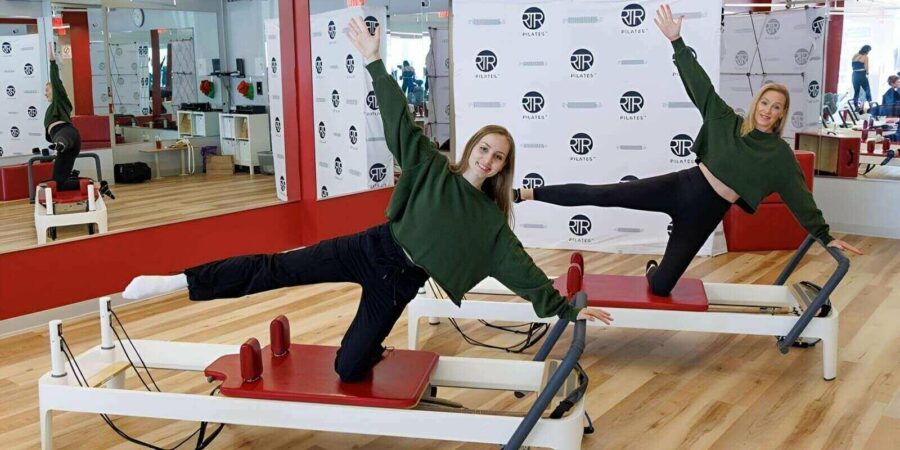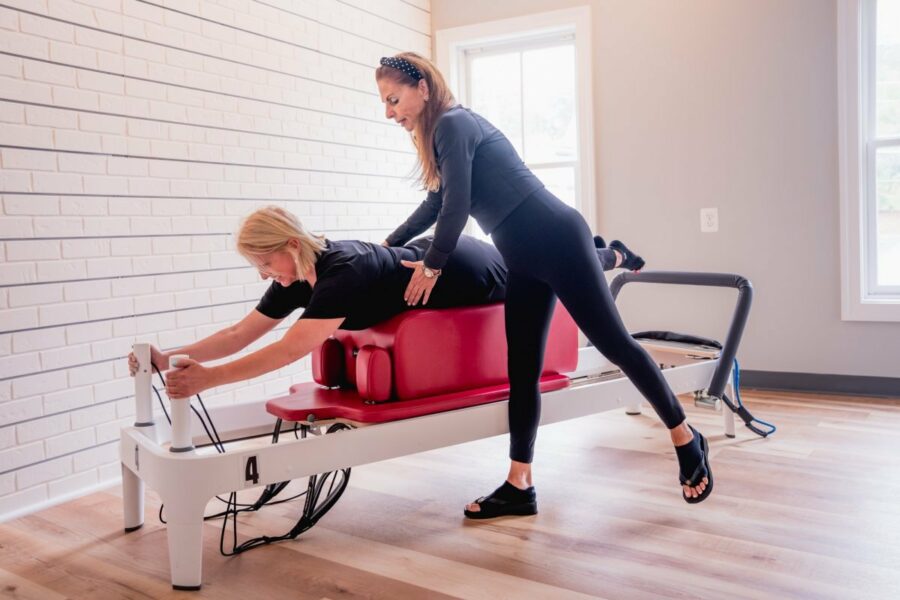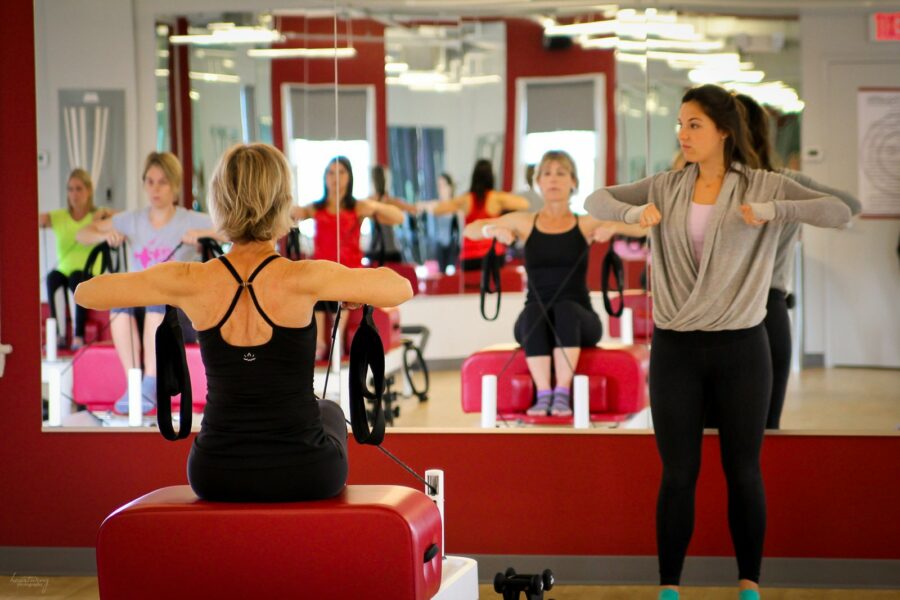We always talk about how Pilates is great for your body and your mind. We see it in ourselves and others. But it’s one thing to hear it anecdotally, and another to see the science.
Guess what: researchers agree! Exercise in general is great for your mental health, and Pilates offers additional benefits beyond what we see from general physical activity.
Here are five ways Pilates can benefit your mental health, according to science.
1. Improved memory
The hippocampus is a part of your brain that is vital to certain types of memory. We know that a bigger hippocampus usually means improved memory function, especially as it relates to spatial memory (i.e. navigation and object location).
Unfortunately, we also know that the hippocampus gets smaller with age, and that process coincides with cognitive decline.
The good news is that University of Illinois researchers found that there is a strong correlation between fitness and the size of your hippocampus, even in adults aged 59-81. According to the study, adults with stronger physical fitness had larger hippocampi on average, which indicated better spatial memory.
2. Reduced anxiety and depression
Regular exercise in general has a number of benefits that can lead to reduced anxiety and depression, including the release of endorphins in the brain and improved self-esteem. But did you know that Pilates specifically has demonstrated a correlation with reduced anxiety and depression?
A 2017 study followed 63 participants over eight weeks as they attended three 60-minute Pilates classes per week. After eight weeks, the Pilates attendees demonstrated reduced levels of anxiety and depression and improved quality of life.
3. Reduced stress
We spend a lot of our days in some degree of a flight or fight response due to external stimulation and stress. Extended periods of stress can lead to a number of side effects including:
- Hormonal imbalances
- Decreased fertility
- Poor digestion
- Weakened immune system
- Anxiety
- Depression
- Increased risk of addiction
- Increased risk of eating disorders
So…it’s not great. But how do we escape this cycle, especially if we have a stressful job?
One way to get out of that fight or flight response is deep breathing. In Pilates, we focus a lot on deep breathing and synchronizing our breaths with our movement, which has significant long-term benefits for your body and mind.
Multiple studies indicate that deep breathing can be life-changing when it comes to stress reduction.
Deep breathing activates the Parasympathetic Nervous System (PNS), which sends a signal to your brain that you’re safe and don’t need to be in fight or flight. An active PNS supports your mental health, digestion, and metabolism; increases cognitive function; and decreases your risk of cardiac arrest or stroke.
TLDR: Deep breathing helps you stay relaxed, which is the state that your body WANTS to be in! Almost everything in your body and mind works better when you’re not stressed out.
4. Increased emotional resilience to stress
Pilates doesn’t just reduce your overall stress levels. It can also increase your resilience in the face of acute stress. A 2014 study found that individuals who reported physical exercise at least once per week exhibited more emotional resiliency during stressful events. While physical stress responses didn’t differ between the exercise group and the control group, the exercise group was less emotionally affected by stressful events.
Regardless of individual personalities or baseline happiness levels, the group who exercised was able to maintain a more positive mood.
On top of emotional resiliency, which is great for mental health, positive moods are also associated with decreased mortality, so it’s a win-win scenario.
5. Increased energy levels
Even if exercise might tire you out at the moment, regular exercise is associated with increased energy levels overall.
Exercise increases the production of mitochondria in your muscle cells, and we all remember from middle school science call that the mitochondria are the powerhouse of the cell. Mitochondria creates fuel for the body from glucose and oxygen, so more mitochondria increase our overall energy levels.
Exercising also boosts oxygen circulation, which allows your body to use energy more efficiently.
Numerous studies have examined the relationship between exercise and fatigue or energy levels, and they all suggest that there is an association between physical activity and a reduced risk of experiencing feelings of low energy and fatigue.
Support your mental health with RTR Pilates!
Join the RTR Community and start creating a stronger mind-body connection today. Get your first month of unlimited classes for $129.



